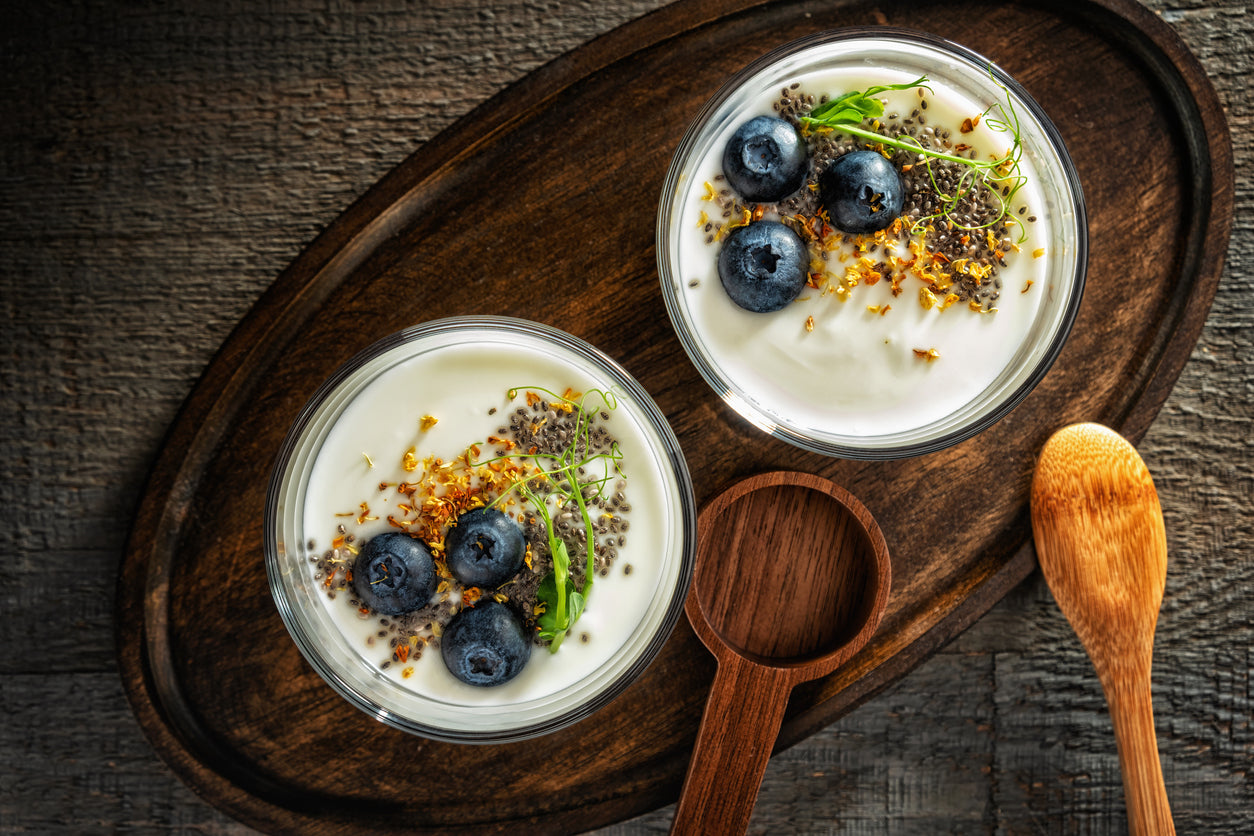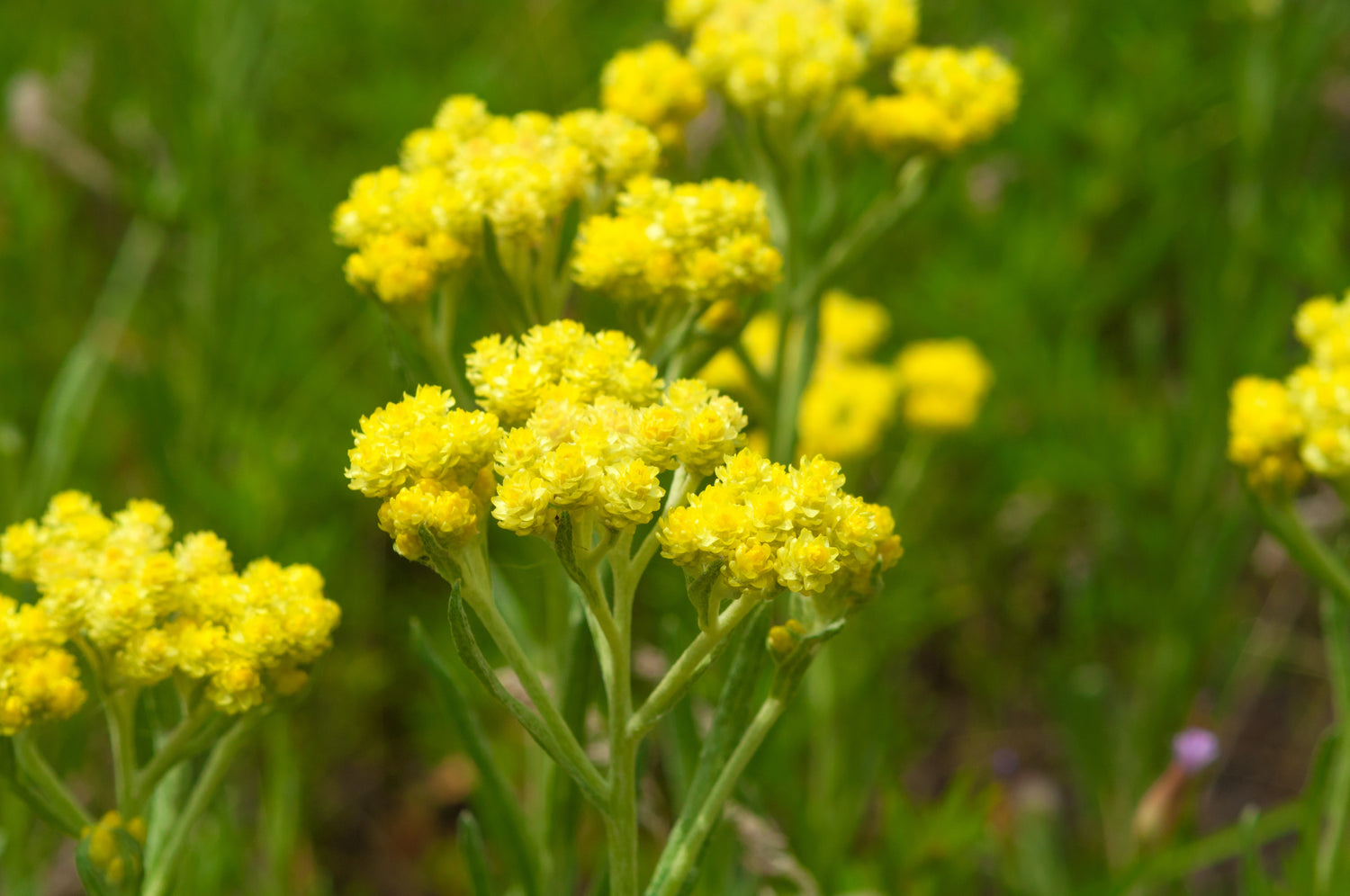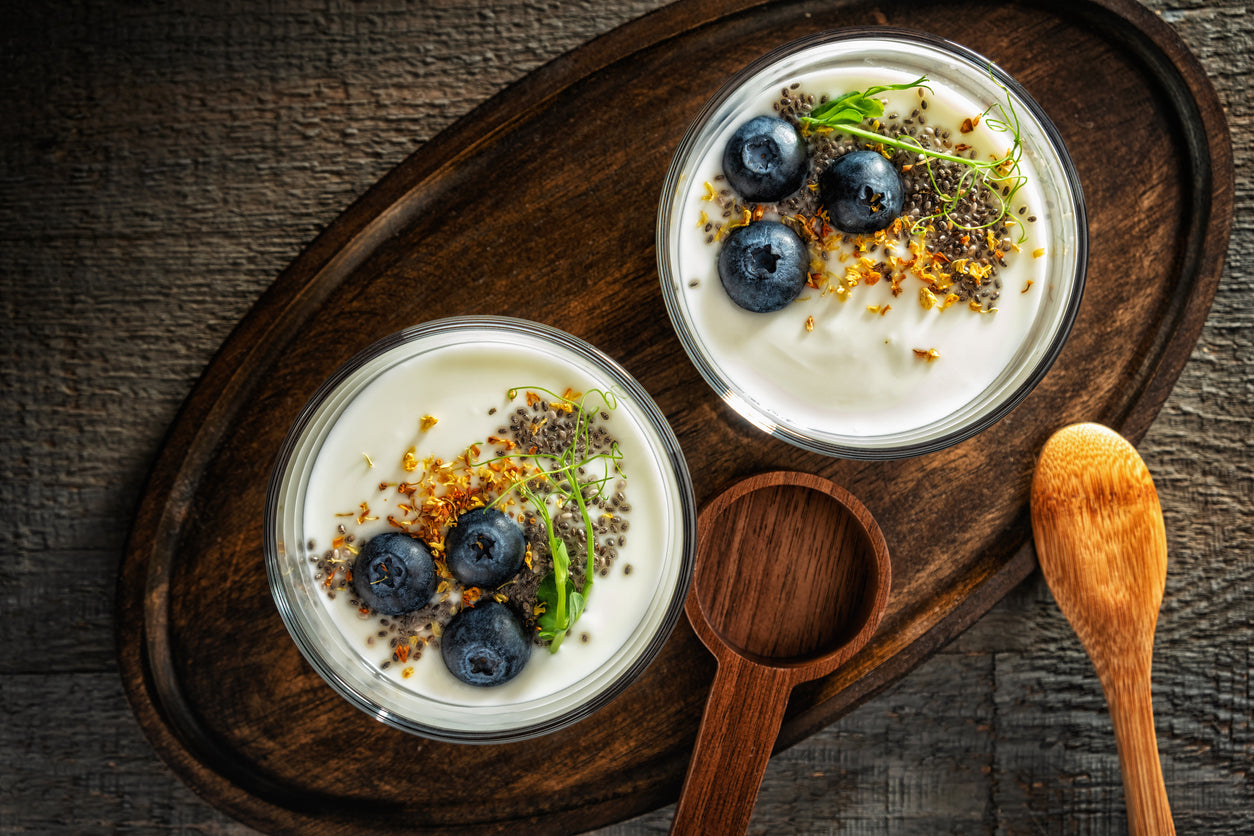Prebiotics and probiotics are all the rage now, exalted in articles and reports for their significance and role in helping us maintain good health; particularly good gut health. But although they have been part of human life for thousands of years, the first probiotic was discovered by Bulgarian physician and microbiologist Stamen Grigorov only back in 1905. And, perhaps even more surprisingly, it took until the 1990s for scientists to start examining them more closely.
The focus, until recently, has been on the effect both prebiotics and probiotics have in the digestion of the foods we eat. Lately, though, science has begun to recognize their impact on more than just our gut health. But before we go into the role they play also for our skin health, let’s first take a look at what distinguishes prebiotics from probiotics.
Understanding the difference between pre- and probiotics
Probiotics are so-called “good” bacteria and yeasts that live in our digestive tract, help support healthy digestion and offer a range of benefits to our overall health. Essentially, they help push food through our gut, by affecting the nerves that control our gut movements.
Prebiotics, on the other hand, are naturally occurring, non-digestible food components that serve as food for the probiotics in our intestines.
Susan O’Donnell, Shore Medical Center Clinical Nutrition Manager, offers a great analogy to help explain how the two work together: “Prebiotics are like the stagehands getting the stage ready for the actors to perform. Probiotics are the actors who can have a more effective performance with the stagehands’ input.”
Which begs the question: is one more important than the other? Not according to the experts. “A mixture containing a blend of probiotics and prebiotics is called a symbiotic,” explains O’Donnell. “Together they work synergistically; the prebiotics feed the probiotics and probiotics maintain a healthy gut.”
The role of pre- and probiotics in skin health
In a July 2023 article of Nutrients, the authors suggest that better gut health can result in improved skin health. They conclude that “when the abundance of probiotics in the organism is sufficient, the organism behaves as follows: promotes digestion, improves diarrhea, lowers body fat, regulates blood lipids, prevents reproductive system infections, prevents allergies, and promotes skin peeling and skin care.”
The same is true of prebiotics, the unsung heroes of skincare. According to the writers of a review published in June 2014 in PubMed, “prebiotics can be applied to the skin microbiota directly and increase selectively the activity and growth of beneficial 'normal' skin microbiota.” By nourishing the beneficial bacteria on our skin, prebiotics can contribute to a balanced skin microbiome, resulting in improved barrier function and reduced skin inflammation.
What it all means for us in practice
Recognizing the significance of pre- and probiotics in the getting and keeping the skin healthier, and smoother, we have included prebiotics in three of our health and beauty products.
Our ATHONITES INVIGORATE AND CLEANSE SHOWER GEL contains prebiotics and organic aloe vera to strengthen and protect the all-important skin barrier. Its gentle cleansing formula soothes and calms both normal and sensitive skin types.

Our ATHONITES SOOTHE AND HYDRATE FACE MIST from organic herbs from Mount Athos, is enriched with prebiotics, to support and build a healthy skin microbiota. This gentle mist, with water from the natural fresh-water springs of Mount Athos, soothes, hydrates, and preps the skin for the next steps of the skincare routine.
Last, but not least, our ATHONITES ANTI-REDNESS SOOTHING CARE CREAM made from organic herbs from Mount Athos, and infused with prebiotics, offers immediate relief for dry, irritable, and itchy skin. Its soothing and hydrating properties make it ideal for all types of skin.
Pre- and probiotics have played a role in our lives forever. And yet, they are only now becoming the subject of intense studies. And the more we learn, the better we will become in using them to our benefit.
This is no gut feeling. It’s a scientific fact.






